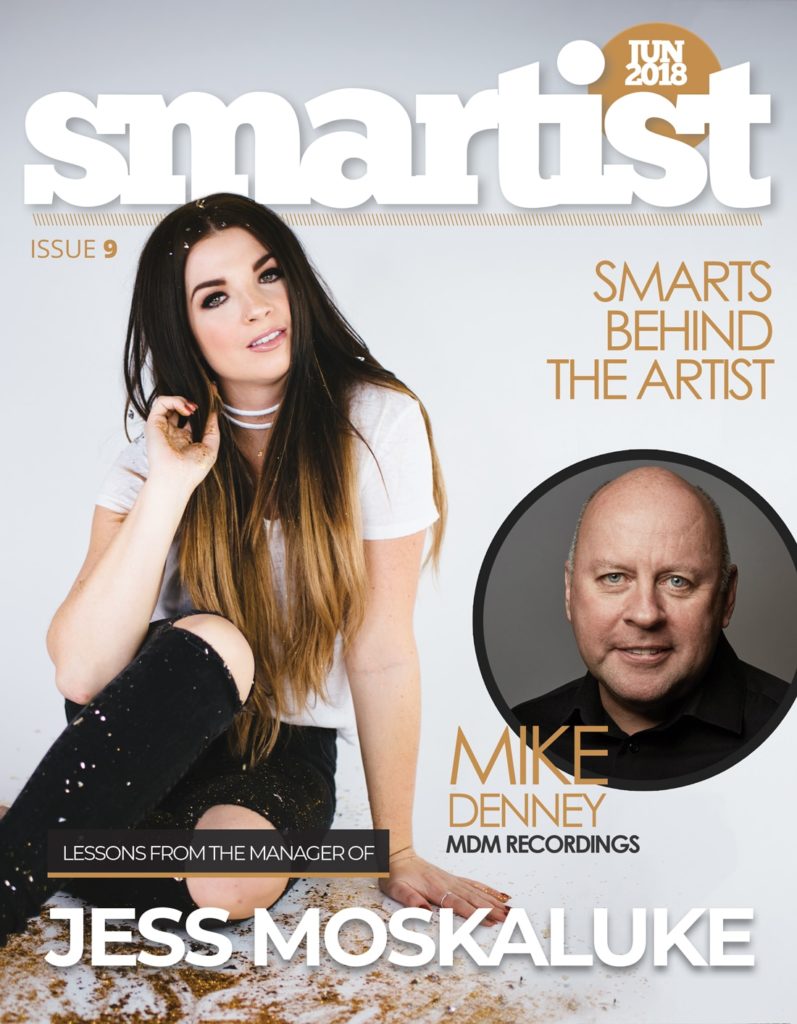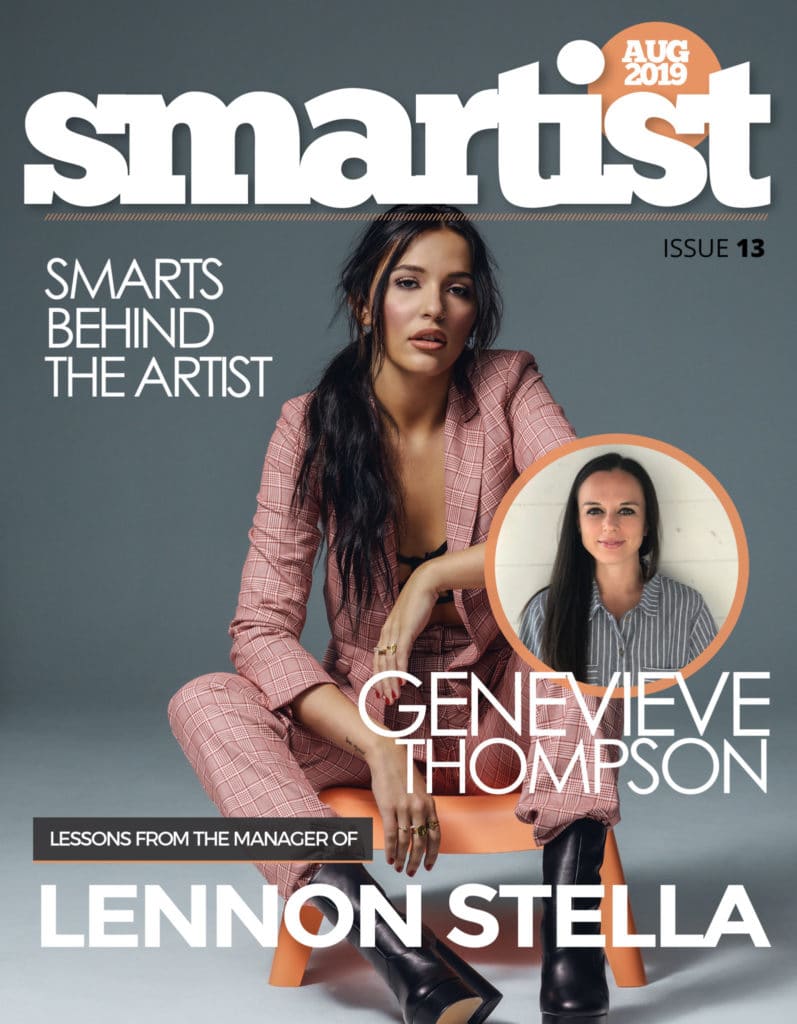How to Draft an Artist Management Contract

Before Signing An Artist Management Contract: The Dating Phase
Although it is recommended for a startup manager to not be picky with whom he or she first chooses to work for, always keep in mind that believing in your clients’ art is one of the primary foundations for success – whatever you define success as. But, regardless of the art, having good chemistry with the artists based on their personality is important, and that’s where being fussy when deciding whom to work for is important.
Many managers devotedly stick to an approach known as the “Dating Phase”, a period of time when both artist and manager agree to work together in an informal fashion. This time serves to build the relationship; to test if both parties can get along and if they are serious/professional about their work.
Don’t stress about creating the perfect artist management contract just yet. This informal period should go on until the both of you agree that your professional relationship has proven as opportunity for a positive development in the artistic project. It can take a few months for both to mutually feel safe, and that’s when the time for putting it down to ink has come.
Before you read about the short-term agreement, it is important to understand that this info is generic, since many managers have different management methods. However, you should see the same basic clauses in all contracts.
The Deal Memo
Before a full contract is written, perhaps with the help of an attorney, you should pinpoint your objectives and what you’re prepared to do with your client, as well as what you expect out of the agreement, in what is called a deal memorandum. Once these basic standings are determined and agreed by both parties, you can go about drafting a more extensive, detailed contract. Below are standard clauses found in a typical agreement, but it should serve simply as a guide to understanding artist management contracts – that every situation is different, with its own unique set of circumstances. Some countries follow different industry practices.
Management Fee
• The industry standard for a manager to be compensated for his or her efforts is 15% – 20% of the client’s earnings. This includes album sales, label advancing, and from earnings from deals they have negotiated. Some do not take anything from merchandise sales and songwriting royalties, but this can be negotiated. You need to add how payments will be made and who will collect the money earned.
• It is important to note, additionally, that the manager should not be responsible to pay for business expenses for promoting the band, business trips on behalf of the client, and other rational costs. Many pay for their own phone or office costs. Make sure you handle this fairly by providing the client with receipts. Also, explain in the contract that any expenses that exceed a certain amount should be cleared with the client first.
Division of Labour
• This outlines the job expectations from both parties. If you’re working with a new band, with little capital, they may want you to promote them to labels, get them gigs, etc. Further along when the project is able to afford other people to do work for you (publicists, booking agents, graphic designers, etc.), it will be your job to make sure these people are doing everything efficiently. Also, will you have the right to sign certain agreements on behalf of the artist?
Term
• The term is the length of the Agreement. The usual contract is valid for one year, with options to extend the agreement with the consent of both parties. This is a time in which clauses can be renegotiated.
Breach
• Determining breach specifics is important in case either party fails to execute the expectations laid out in the agreement. The breach clause underlines how both parties will go about suspending the contract.
You have to have as many original copies of this document and as many signatures in ink. So if the band has 4 members, then you need 5 copies. Everybody, including you, signs.
Short-Term Agreement Template
A short-term agreement can also be called a ‘Trial Period’. It serves like a formal ‘Dating Phase’ and it can be very simply organized:
• Commission (including reimbursement of manager expenses)
• Term (X months from the date of signing)
• Breach
• Date & Signatures
Division of labour can be added optionally. Once the term is over, usually the option to extend the agreement to a long-term contract is granted.
Long-Term Contract Template
Since the manager and the artist have now decided to work long-term, a more meticulous contract must be written. A long-term contract can be divided in two sections: The Contract, which denotes either party’s rights and defines terms found in the Schedule; and the Schedule, which serves to explain in detail the clauses that both are signing into. It defines:
The Artist
• Can be an individual, a partnership, or a corporation/limited company. Stage names can be added to real name, including current address. If a group of people in a band, all names and addresses should be stated.
The Manager
• Can be an individual, a partnership, or a corporation/limited company
Territory
• If the manager isn’t working with the artist at a worldwide scale, it must be made clear who the other managers are, including their roles. Regarding commission, the principal manager usually takes half of what the foreign manager makes.
Term (w/ notice of termination)
• Can be anything from six months to seven years. A typical approach to the term is to opt for a relatively long term, say, 12 months, and leave the term as indefinite from that period onwards with a 3-month notice required. On the other hand, since the beginning of an artist’s career is a time that requires the most attention, some managers feel safer with a longer term for their time and effort.
Commission Rate
• The industry standard is 15-20%. However, this can be negotiated up to 50% depending on the extent of time and effort that the manager is putting in, and if the manager is working with the project exclusively. Also, touring, merchandising, sponsorship income are laid out in greater detail here.
Commission Term
• After the term is done, it is standard for the manager to continue to receive commission for achievements during the term. This is also known as a “sunset clause.”
Division of Labour
• Underlines both the manager’s and the artist’s responsibilities.
Artist Bank Account information
• This allows either party to charge interest if the other owes them money beyond term arrangements.
Breach
• Stipulates the consequences of ending the contract before the end of its term.
Going without a Contract
Although it is not recommended in any negotiations setting to go about doing business without a contract, managers who have developed certain trusting relationship with their clients – and vice versa – may feel that a binding contract may possibly be detrimental to the art, and so don’t go about devoting their time to such. It is not recommended to go about this method even with the most trusting of relationships because money can be a very delicate issue, especially when it holds the importance of being one’s way of making a living.





Hello JAMIE MY NAME IS Morris but everyone calls me mo . I’m CEO of MoPeace Productions I have several artist and few employees most of my crew is located in SA .if you take a look at web it will explain more what I built this company on . I stared this on my own I was in SA and meet these outstanding artist but probably will never get the chance to be heard due to the way of living so I took the leap and started this company to help young talented people reach that level of success at the same time building a family amongst us you dig. this has been tough but I will not give up so any info you are willing to share with me would be a blessing the more I can learn the better I can be . thanks Jamie for listening #MoPeace Productions
Hi Morris!
I dig! That’s a very commendable thing you have done, starting your company for these artists. Do everything you can to help them be heard and gain fans. I will continue to share everything I know, and I hope you continue reading. If you haven’t subscribed yet, make sure you do that. Cheers!
Hie just started managing a group of upcoming artists
Would you please email me a template on how a artist manager contract should be like
Thanks
Hi Jackie,
We have a free contract example available for download at smartbandmanagement.com/free.
Cheers!
HI Jamie,
I got an interesting question. I co-own a record label with two music publishing companies. Recently met a music agent that’s coming to our label as a managing partner. Looking to see what kind of contract putting together. I would think it would be similar as an artist contract. Except this is for a record label. What incentives that I can put in the contract. And the real question is how long. Was thinking would be the basic 12 months then automatically renewing the contract each other with newer responsibilities and higher incentives. As we reach certain goals. I have a pretty good idea. Not sure what else I think of.
He had mentioned we needed to restructure the contract. And totally agree.
Hi Antonio. The first thing that is giving me pause is “recently met” and becoming “managing partner” in the same sentence. I would be extra extra extra wary of signing on a managing partner that you just met. I don’t know anything about record company managing partner contracts, but I know how quickly partnerships can go south (negative). So if you’re sure you want to enter into this contract you should make a good exit clause. Additionally, if you don’t have a proper written agreement in place and don’t know what to put in the agreement, hire an entertainment attorney to draft a professional one for you. Hope this helps!